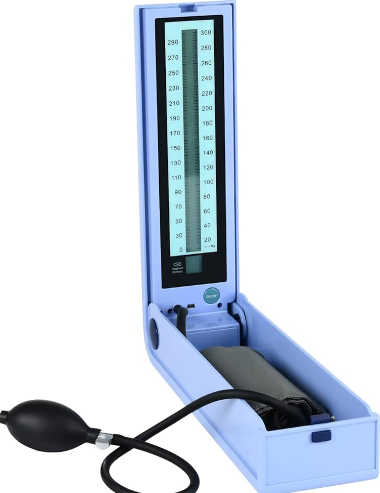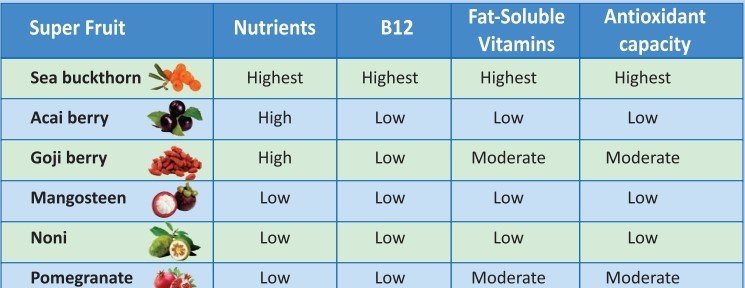Blood Pressure (B.P) :- Symptoms and Controls.
Now-a-days B.P problem have became the common problem in each and every houses. at old age all person are suffering from this problem. someone have B.P high and some one have B.P low problem. B.P problem always may cause death , that’s why it is always a serious problem. in this post we will know about the reason of B.P problem and how can it control. i will discuss the organic method by which B.P can be control. so if you have reading this post means definitely it will be very beneficial for you or for your family.
Table of Contents
What is B.P Problem?
Yes, “B.P.” often refers to blood pressure. Blood pressure (BP) is the force exerted by the blood against the walls of the blood vessels. It is typically measured in millimeters of mercury (mm Hg) and recorded as two numbers:
- Systolic pressure: The top number, which represents the pressure in the arteries when the heart beats (contracts) and pumps blood out into the arteries.
- Diastolic pressure: The bottom number, which represents the pressure in the arteries when the heart is at rest (between beats) and fills with blood.
A healthy blood pressure is usually considered to be around 120/80 mm Hg or lower. High blood pressure (hypertension) occurs when the force of blood against the artery walls is consistently too high, and it can lead to various health problems, including heart disease, stroke, and kidney disease.
Low blood pressure (hypotension) occurs when the blood pressure is too low, which can cause symptoms like dizziness, fainting, and fatigue.
It’s important to monitor blood pressure regularly, especially as one ages or if there is a family history of high blood pressure, and to seek medical advice if it’s consistently high or low.
How Blood Pressure is Measured:
Sphygmomanometer: This is the medical device used to measure blood pressure. It consists of an inflatable cuff attached to a pressure gauge and a stethoscope or a digital sensor.
Procedure:
a. The cuff is wrapped around the upper arm, snugly but not too tight.
b. The cuff is inflated, temporarily stopping the blood flow.
c. The cuff pressure is slowly released while listening to the brachial artery with the stethoscope or through a digital sensor. This is done to listen for the sounds of blood flow. These sounds are known as Korotkoff sounds.
d. The pressure at which the first sound is heard is the systolic pressure, and the pressure at which the sounds disappear is the diastolic pressure.

Interpretation of Blood Pressure Readings
- Normal: Below 120/80 mm Hg
- Elevated: Between 120-129/less than 80 mm Hg
- Hypertension Stage 1: Between 130-139/80-89 mm Hg
- Hypertension Stage 2: 140/90 mm Hg or higher
- Hypertensive Crisis: Higher than 180/120 mm Hg
Why Blood Pressure is important :-
High blood pressure (hypertension) is a risk factor for various health problems, including heart disease, stroke, and kidney disease. It is often called the “silent killer” because it often has no symptoms but can cause significant damage to the heart, blood vessels, and other organs over time.
It’s essential to monitor blood pressure regularly, especially if there is a family history of high blood pressure or if one has other risk factors, and to seek medical advice if it’s consistently high or low.
Reason For High Blood Pressure ?
High blood pressure, or hypertension, is a condition that affects millions of people worldwide. It occurs when the force of blood against the walls of the arteries is consistently too high, putting extra strain on the heart and blood vessels. High blood pressure can lead to serious health problems, including heart disease, stroke, and kidney disease. In this article, we will explore the scientific reasons behind the development of high blood pressure.
Genetic Factors: There is evidence to suggest that genetics play a significant role in the development of high blood pressure. If you have a family history of hypertension, you may be at an increased risk of developing the condition yourself. Genetic factors can influence how your body regulates fluids and sodium, as well as how your blood vessels respond to certain stimuli.
Dietary Factors: The foods we eat can have a significant impact on our blood pressure levels. A diet high in sodium (salt) can cause your body to retain more water, which increases the volume of blood in your arteries and raises your blood pressure. Additionally, a diet high in saturated fats and cholesterol can lead to the buildup of plaque in your arteries, which can narrow them and increase your blood pressure.
Lifestyle Factors: Several lifestyle factors can contribute to the development of high blood pressure. Lack of physical activity can lead to weight gain and increase your risk of hypertension. Smoking can also raise your blood pressure and damage your blood vessels, increasing your risk of heart disease and stroke. Chronic stress can cause your body to produce hormones that narrow your blood vessels and increase your heart rate, both of which can raise your blood pressure.
Age: Blood pressure tends to increase with age. As you get older, your arteries stiffen, which can cause your blood pressure to rise. Additionally, the risk of high blood pressure increases with age due to the accumulation of other risk factors, such as weight gain and decreased physical activity.
Underlying Medical Conditions: Certain medical conditions can contribute to high blood pressure. Chronic kidney disease, for example, can impair the kidneys’ ability to regulate fluids and sodium, leading to high blood pressure. Adrenal disorders, such as Cushing’s syndrome or pheochromocytoma, can cause the adrenal glands to produce too much of certain hormones, which can raise your blood pressure. Thyroid disorders can also affect your blood pressure by altering your body’s metabolic rate.
Sleep Apnea: Sleep apnea is a condition in which you repeatedly stop breathing during sleep. It has been linked to high blood pressure, possibly due to the repeated periods of low oxygen levels that occur during episodes of apnea.
Pregnancy: Some women develop high blood pressure during pregnancy, a condition known as gestational hypertension. This condition can increase the risk of complications for both the mother and the baby, so it is important to monitor blood pressure during pregnancy.
high blood pressure can have a variety of causes, including genetic factors, dietary factors, lifestyle factors, age, underlying medical conditions, sleep apnea, and pregnancy. If you have concerns about your blood pressure or are at risk of developing hypertension, it is important to talk to your healthcare provider. They can help you identify any risk factors you may have and work with you to develop a plan to manage or prevent high blood pressure.
Controlled and cure of High Blood pressure?
High blood pressure, also known as hypertension, can be controlled and managed through lifestyle changes and, in some cases, medications. While high blood pressure cannot be “cured” in the traditional sense, it can be managed effectively to reduce the risk of complications.
Lifestyle Changes:
Diet: One of the most effective ways to control high blood pressure is through a healthy diet. Reducing sodium intake is particularly important, as too much sodium can increase blood pressure. The American Heart Association recommends limiting sodium intake to no more than 2,300 milligrams (mg) per day, with an ideal limit of 1,500 mg per day for most adults.
Exercise: Regular physical activity can help lower blood pressure and keep it under control. The American Heart Association recommends at least 150 minutes of moderate-intensity aerobic activity or 75 minutes of vigorous-intensity aerobic activity per week, along with muscle-strengthening activities on two or more days per week.
Weight Loss: Being overweight or obese is a significant risk factor for high blood pressure. Losing weight can help reduce blood pressure and lower the risk of other health problems. Even modest weight loss can make a difference; losing as little as 10 pounds can lower blood pressure.
Quit Smoking: Smoking raises blood pressure and damages blood vessels, increasing the risk of heart disease and stroke. Quitting smoking can help lower blood pressure and improve overall health.
Limit Alcohol: Drinking too much alcohol can raise blood pressure. The American Heart Association recommends limiting alcohol intake to no more than two drinks per day for men and one drink per day for women.
Medical Treatment:
In addition to lifestyle changes, medical treatment may be necessary to control high blood pressure. There are several classes of medications that may be prescribed, including:
Diuretics: Diuretics, also known as water pills, help the body get rid of excess sodium and water, which can help lower blood pressure.
ACE Inhibitors: Angiotensin-converting enzyme (ACE) inhibitors help relax blood vessels, making it easier for blood to flow through them.
Beta-Blockers: Beta-blockers reduce the heart rate and the force of the heart’s contractions, which can lower blood pressure.
Calcium Channel Blockers: Calcium channel blockers relax and widen blood vessels, allowing blood to flow more freely.
ARBs: Angiotensin II receptor blockers (ARBs) block the action of angiotensin II, a hormone that causes blood vessels to narrow, which can help lower blood pressure.
It’s essential to follow your doctor’s advice and take any prescribed medications as directed. Be sure to discuss any potential side effects or concerns with your doctor.
In some cases, lifestyle changes and medication may not be enough to control high blood pressure. In these situations, additional treatments may be necessary, such as:
Renal Denervation: Renal denervation is a procedure that uses radiofrequency energy to disrupt the nerves in the kidneys that contribute to high blood pressure.
Baroreflex Activation Therapy: Baroreflex activation therapy is a device that is implanted under the skin and delivers electrical impulses to the carotid sinus, a blood vessel in the neck that helps regulate blood pressure.
Lifestyle Changes: Lifestyle changes, such as quitting smoking, reducing sodium intake, and losing weight, can also help lower blood pressure.
Medication: In some cases, medication may be necessary to control high blood pressure. There are several classes of medications that may be prescribed, including diuretics, ACE inhibitors, beta-blockers, calcium channel blockers, and ARBs.
It’s important to note that while high blood pressure can often be controlled and managed, it is not always curable. However, with the right lifestyle changes and medical treatment, many people can live healthy lives with controlled blood pressure.
Reason For Low Blood Pressure ?
Low blood pressure, also known as hypotension, refers to a condition where the blood pressure falls below normal levels. Blood pressure is the measure of the force exerted by the blood against the walls of the arteries. It is important for the proper functioning of the cardiovascular system and overall health. Normal blood pressure is typically considered to be around 120/80 mm Hg, with variations based on factors such as age, gender, and overall health.
Hypotension can be categorized into primary (idiopathic) and secondary forms. Primary hypotension is often benign and not associated with any underlying health condition. On the other hand, secondary hypotension is caused by an underlying health problem or an external factor.
Several factors can contribute to low blood pressure:
Heart Problems: Heart diseases such as heart failure or a heart valve problem can lead to low blood pressure. When the heart fails to pump blood effectively, it can cause a decrease in blood pressure.
Dehydration: When the body loses more water than it takes in, it can lead to dehydration. Dehydration can decrease blood volume, leading to low blood pressure.
Medications: Certain medications, such as diuretics, alpha blockers, beta blockers, and some antidepressants, can cause low blood pressure.
Endocrine Problems: Adrenal insufficiency (Addison’s disease), hypothyroidism, and low blood sugar (hypoglycemia) can cause low blood pressure.
Severe Infection (Septicemia): An overwhelming infection can lead to septic shock, a condition where the blood pressure drops to dangerously low levels.
Blood Loss: Severe blood loss from an injury or internal bleeding can cause low blood pressure.
Nutritional Deficiencies: A deficiency in key nutrients such as vitamin B12, folate, or iron can lead to anemia, which can cause low blood pressure.
Postprandial Hypotension: Some people experience a drop in blood pressure after eating, especially after large meals. This condition is more common in older adults.
Orthostatic Hypotension: This condition occurs when there is a sudden drop in blood pressure when standing up from a sitting or lying position. It is more common in older adults.
Pregnancy: During pregnancy, a woman’s circulatory system expands, which can cause a decrease in blood pressure.
Severe Allergic Reaction (Anaphylaxis): A severe allergic reaction can cause the body to release chemicals that lead to a drop in blood pressure.
Excessive Heat: Exposure to extreme heat can lead to dehydration and low blood pressure.
Nervous System Disorders: Conditions that affect the autonomic nervous system, such as Parkinson’s disease, can cause low blood pressure.
Varicose Veins: Blood pooling in the legs due to varicose veins can lead to a decrease in blood pressure.
Emotional Stress: Stress can cause the body to release hormones that can cause a temporary increase or decrease in blood pressure.
It is important to note that low blood pressure can be a sign of an underlying health problem and should be evaluated by a healthcare professional. Treatment depends on the underlying cause and may include lifestyle changes, medications, or other interventions to help manage symptoms and prevent complications.
Controlled and cure of Low Blood pressure?
Low blood pressure, also known as hypotension, is defined as a blood pressure reading lower than 90/60 mm Hg. It can be caused by a variety of factors, including dehydration, blood loss, certain medications, heart problems, endocrine disorders, pregnancy, nutritional deficiencies, infections, and neurological disorders. While low blood pressure is not usually considered a medical emergency, it can cause symptoms such as dizziness, lightheadedness, and fainting, which can be bothersome and interfere with daily activities. If you are experiencing symptoms of low blood pressure or have concerns about your blood pressure readings, it is important to talk to your healthcare provider(doctor). They can help you identify any underlying causes and develop a plan to manage or treat your low blood pressure. here ‘s are some tips regarding Low B.P
Stay Hydrated: One of the most common causes of low blood pressure is dehydration. To help maintain adequate blood pressure levels, it is important to stay hydrated by drinking plenty of fluids throughout the day. You should aim for at least 8-10 glasses of water per day, but you may need more if you are physically active or in hot weather. In addition to water, you can also consume fluids such as herbal tea, milk, and fruit juice.
Increase Salt Intake: Sodium helps to maintain blood pressure levels by regulating the amount of water in the body. If you have low blood pressure, increasing your salt intake can help raise your blood pressure. However, it is important to note that too much salt can lead to high blood pressure, so it is important to consume salt in moderation. You can increase your salt intake by adding a pinch of salt to your meals or by consuming salty snacks such as pretzels, chips, and popcorn.
Eat Small, Frequent Meals: Eating small, frequent meals throughout the day can help prevent drops in blood pressure. Large meals can cause a temporary drop in blood pressure as blood is diverted to the digestive system to aid in digestion. Eating smaller, more frequent meals can help prevent this drop in blood pressure.
Avoid Alcohol: Alcohol can lower blood pressure, so it is important to avoid excessive alcohol consumption if you have low blood pressure. If you do choose to drink alcohol, it is important to do so in moderation. The American Heart Association recommends that men limit alcohol consumption to no more than two drinks per day and women limit alcohol consumption to no more than one drink per day.
Wear Compression Stockings: Compression stockings can help prevent blood from pooling in the legs and feet, which can cause a drop in blood pressure. If you have low blood pressure, wearing compression stockings can help raise your blood pressure.
Increase Physical Activity: Regular physical activity can help raise blood pressure levels. Exercise helps to strengthen the heart and improve circulation, which can help raise blood pressure. It is important to choose activities that you enjoy and that you can do safely. If you have low blood pressure, you may want to avoid activities that involve sudden changes in position, such as jumping or diving, as these can cause a drop in blood pressure.
Avoid Prolonged Standing or Sitting: Prolonged standing or sitting can cause blood to pool in the legs and feet, which can cause a drop in blood pressure. If you have low blood pressure, it is important to avoid prolonged standing or sitting. If you need to stand or sit for long periods of time, try to take breaks and move around periodically to help prevent blood from pooling in the legs and feet.
Be Careful When Standing Up: When you have low blood pressure, you may feel dizzy or lightheaded when you stand up. This is known as orthostatic hypotension. To help prevent orthostatic hypotension, it is important to be careful when standing up. When you are lying down, take your time getting up. Sit on the edge of the bed or chair for a few moments before standing up. Once you are standing, stand still for a few moments before walking. If you feel dizzy or lightheaded, sit or lie down immediately.
Consult a Doctor: If you are experiencing symptoms of low blood pressure, it is important to talk to your doctor. They can help you identify any underlying causes and develop a plan to manage or treat your low blood pressure. Your doctor may recommend lifestyle changes, such as increasing your salt intake, staying hydrated, and wearing compression stockings, or they may prescribe medications to help raise your blood pressure.
Monitor Blood Pressure Regularly: If you have low blood pressure, it is important to monitor your blood pressure regularly. This can help you keep track of your blood pressure levels and identify any changes. You can monitor your blood pressure at home using a blood pressure monitor. It is important to follow the instructions provided with the monitor and to take your blood pressure at the same time each day. If you have any concerns about your blood pressure readings, it is important to talk to your doctor.
Be Patient: It can take time to find the right combination of treatments to help raise your blood pressure. It is important to be patient and to work closely with your doctor to find the best treatment plan for you.
low blood pressure can be managed effectively through lifestyle changes and, in some cases, medications. If you are experiencing symptoms of low blood pressure or have concerns about your blood pressure readings, it is important to talk to your doctor. They can help you identify any underlying causes and develop a plan to manage or treat your low blood pressure.
Sea Buckthorn : Revolution in Medical.
It is known as super fruit than all.

Sea buckthorn has plenty of nutrients which keep the body healthy and prevent disease , along with carotenoids , antioxidants , vitamins , minerals , polyphenols and phytosterol. Sea buckthorn is a richest source of natural fatty acid omega 3 , 6 and 9 along with rarest fatty acid omega 7. These essential fatty acid are needed to remain healthy and cannot normally be obtained from our diets today. and this super fruit is very beneficial for B.P problem. i have been lots of people who is using Tea leaf of Sea buckthorn which controls the B.P whether it have low or high. even my family member is also using this for B.P and it really working and even scientist are also working day by day and YouTube have lots of video on sea buckthorn. if you want sea buckthorn product please write us on my email :- gyanactivator@gmail.com .


You Interested in the following content :-
For Study related materials you can visit here.

Pingback: विज्ञान से आप क्या समझते है : 2024
Pingback: Nationalism : A Comprehensive Analysis
Pingback: भौतिक विज्ञान मे न्यूटन का योगदान : 2024
Pingback: Navigating the Darkness: A Guide to Living with Depression - Gyan Activator
Pingback: board examination : How to get good marks 2024
Thank you for the auspicious writeup. It in fact was a amusement account it. Look advanced to far added agreeable from you! However, how can we communicate?
you can message me on gyanactivator@gmail.com